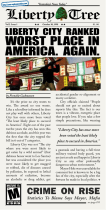Page is loading ...

Fallingwater
®
Mill Run, Pennsylvania
Building Instructions
Architectural Drawings
The History of Fallingwater
21005_Fallingwater_BI_book_Rettelser_Aug_09.indd 1
21005_Fallingwater_BI_book_Rettelser_Aug_09.indd 1
21005_Fallingwater_BI_book_Rettelser_Aug_09.indd 1
21005_Fallingwater_BI_book_Rettelser_Aug_09.indd 1
21005_Fallingwater_BI_book_Rettelser_Aug_09.indd 1
9/2/09 11:13:37 AM
9/2/09 11:13:37 AM
9/2/09 11:13:37 AM
9/2/09 11:13:37 AM
9/2/09 11:13:37 AM
9/2/09 11:13:37 AM
9/2/09 11:13:37 AM
9/2/09 11:13:37 AM
9/2/09 11:13:37 AM
9/2/09 11:13:37 AM
9/2/09 11:13:37 AM
9/2/09 11:13:37 AM
9/2/09 11:13:37 AM
9/2/09 11:13:37 AM
9/2/09 11:13:37 AM
9/2/09 11:13:37 AM
9/2/09 11:13:37 AM
9/2/09 11:13:37 AM
9/2/09 11:13:37 AM
9/2/09 11:13:37 AM
9/2/09 11:13:37 AM
9/2/09 11:13:37 AM
9/2/09 11:13:37 AM
9/2/09 11:13:37 AM
9/2/09 11:13:37 AM
9/2/09 11:13:37 AM
9/2/09 11:13:37 AM
9/2/09 11:13:37 AM
9/2/09 11:13:37 AM
9/2/09 11:13:37 AM
9/2/09 11:13:37 AM
9/2/09 11:13:37 AM
9/2/09 11:13:37 AM
9/2/09 11:13:37 AM
9/2/09 11:13:37 AM

2
Courtesy of Western Pennsylvania ConservancyFallingwater
21005_Fallingwater_BI_book_Rettelser_Aug_09.indd 2

3
Contents
Frank Lloyd Wright ...........................................................................................5
History of Fallingwater
®
................................................................................ 6
Facts from the Project ...................................................................................8
The Architect’s Thoughts about the Building ................................ 9
Building Instructions ......................................................................................11
A Word from the Artist ..............................................................................104
LEGO
®
Architecture: Bringing two worlds together ..............105
References .......................................................................................................107

4
© F.L. Wright Fdn.

5
Frank Lloyd Wright
Frank Lloyd Wright, 1867–1959, is recognized worldwide as one of
the greatest architects of the 20th century. His work heralded a
new approach to architecture using innovations in design and
engineering made possible by newly developed technology and
materials.
No other American architect’s work endures, or remains as
compelling, as that of Frank Lloyd Wright. His was a unique style
rooted in nature, that he called “organic architecture,” emphasizing
the harmonious relationship between a building and its
landscape. It changed how we came to view our buildings, towns,
and the land around us.
Photo: OBMA. ® F.L. Wright Fdn.
© F.L. Wright Fdn.

6
History of Fallingwater
®
“He had the design totally in his head, as always, and
as he recommended to the apprentices, if no whole
idea, no architecture.” John Lautner, letter of June 20,
1974. Lautner was an apprentice from 1933 to 1939.
“Mr. Wright was not at all disturbed by the fact that not
one line had been drawn. As was normal, he asked
me to bring him the topographical map of Bear Run
to his draughting table in the sloping-roofed studio
at Taliesin, a rustic but wondrous room in itself...
I stood by, on his right side, keeping his colored
pencils sharpened. Every line he drew, vertically and
especially horizontally, I watched with complete
fascination... Mr. Kaufmann arrived and Mr. Wright
greeted him in his wondrously warm manner. In the
studio, Mr. Wright explained the sketches to his client.
Mr. Kaufmann, a very intelligent but practical
gentleman, merely said... ‘I thought you would place
the house near the waterfall, not over it.’ Mr. Wright
said quietly, ‘E.J. I want you to live with the waterfall,
not just to look at it, but for it to become an integral
part of your lives.’ And it did just that.” Bob Mosher,
Letter of Jan. 20, 1974.
“ I n 1 9 6 3 , E d g a r K a u f m a n n J r . g a v e h i s h o m e , F a l l i n g w a t e r ,
to the Western Pennsylvania Conservancy with the
intent that it be open to the public for tours. His gift
constitutes one of the most magnanimous acts in the
annals of architectural and ne art history. This one
building, undoubtedly the most famous private
residence built in a free, democratic society, has been
widely published the world over since its completion
in 1939, and its inuence continues to this day.
[1]
”
“The famous view of the house, taken from downstream
looking up to the water cascades and under the
balconies above it, emphasizes this element of
projecting forms merging building and landscape.
In most architecture of the wo rld, balc onies are smaller
features of a larger, more stable mass. At Fallingwater,
the entire house is composed of these projections
from and above the rock ledges.
The rooms themselves, with their adjacent outdoor
terraces, are all a part of broad-sweeping balconies
reaching out to the branches of the surrounding
trees, and over the stream and waterfalls below.
[2]
”
“Fallingwater is a country home, and in the annals of
so-called country homes it differs from any other
ever built up to that time... Fallingwater achieves
something that no country home successfully had
before: it emphasizes, in every place and at every
turn, the wonder and beauty of nature in this
woodland setting.
[3]
”
“Fallingwater is that rare work which is composed of
such delicate balacing of forces and counterforces,
transformed into spaces thrusting horizontally,
vertically and diagonally, that the whole achieves the
serenity which marks all great works of art.
[4]
”
© F.L. Wright Fdn.

7
Left: Elevation and Floor Plan
Above: Scaffolding
© F.L. Wright Fdn.

8
Facts from the Project
Architect: ...............................................................Frank Lloyd Wright
Classication:
........................................................... Vacation Home
Year:
................................................................................................................1935
Construction Type:
...........Reinforced Poured Concrete
with Limestone Fascia
Square Feet:
.....................................................2,885 sq. ft. interior
Original Cost:
............................................................................$ 155,000
Top right: Scaffolding
Bottom left: Construction workers
Bottom right: Construction

9
The Architect’s Thoughts about the Building
“The rock-ledges of a stone-quarry are a story and a
longing to me. There is suggestion in the strata and
character in the formations.
I like to sit and feel it, as it is. Often I have thought,
were great monumental buildings ever given me to
build, I would go to the Grand Canyon of Arizona to
ponder them… For in the stony bone-work of the
Earth, the principles that shaped stone as it lies, or as
it rises and remains to be sculptured by winds and
tide – there sleep forms and styles enough for all the
ages for all of Man.
[5]
”
“The visit to the waterfall in the woods stays with me
and a domicile has taken vague shape in my mind to
the music of the stream. When contours come you
will see it. Meantime, to you my affection.
[6]
”
“This structure might serve to indicate that the sense
of shelter…has no limitations as to form except the
materials used and the methods by which they are
employed for what purpose.
[7]
”
“Looking back years later at what he had created
there, in this e nchanted gle n, Wright s aid, ‘ Fallingwater
is a great blessing – one of the great blessings to be
experienced here on earth. I think that nothing
yet ever equaled the coordination, sympathetic
expression of the great principle of repose, where
forest and stream and rock and all the elements of
structure are combined so quietly that really you
listen not to any noise whatsoever, although the music
of the stream is there. But you listen to Fallingwater
the way you listen to the quiet of the country.’
[8]
”
Above: Desk and view
Left: Living Room
© Yukio Futagawa
© Hedrich-Blessing

Planview
Side elevation Front elevation
Adam Reed Tucker
Architectural LEGO Artist

11
Building Instructions

12
2x 1x 2x 3x
1

13
8x
1x1x 2x 1x 3x
2
“Bring out the nature of the materials, let
their nature intimately into your scheme
... Reveal the nature of the wood, plaster,
brick or stone in your designs, they are
all by nature friendly and beautiful.”
– Frank Lloyd Wright, 1908

14
1x
2x 1x
1x
1x
1x
3

15
1x
2x
2x
1x
6x
4

16
1x 2x 1x1x
5

17
1x2x 8x5x
6

18
4x
2x1x1x
7

19
5x
1x
1x
1x
4x
8
1
2 4 5
3
3

20
6x
9
3x
/




